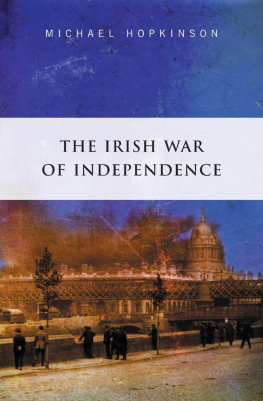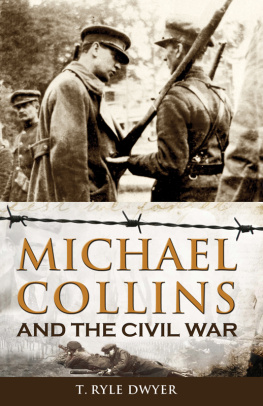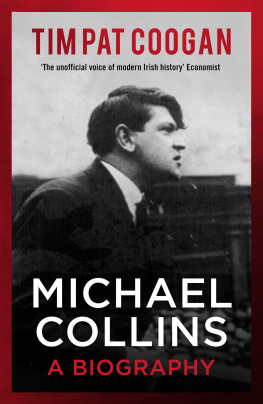Special thanks to Trish Darcy for affording me the time to write, and for her constant love and motivation. My two children missed out on a good few summer days when I should have been with them instead of researching, so thanks to Fionn and Lily May for their patience and support. The following people are deserving of special gratitude: Emer Ryan for her brilliant editorial skills and suggestions, which really shaped the book. For their forbearance, Michael OBrien, Ivan OBrien, Eoin OBrien, Ide N Laoghaire, Susan Houlden and all at OBrien Press, including Emma, Nicola, Kunak, Helen, Bex, Elena, Aoife, Brenda, Sarah, Fionnuala, Laura, Ruth and Ruth. Dr Conor McNamara was particularly helpful and offered many great suggestions and much encouragement, and gave me access to information that I would not otherwise have found. Pdraig g Ruairc was kind enough to read the draft and gave me guidance when I needed it most. Thanks to Liz Gillis for her speedy replies and expertise. Liam Cowley was particularly helpful, too. For encouragement and knowledge: Dr John Gibney, Dr Conor Kostick, Dr Ruan ODonnell, Stew Reddin, Gerry Shannon, Niall Bracken, Paul OBrien, Jim Langton, Ronnie Daly, Ruair ODonnell, and Cuan Seireadin. Donal Fallon and Las Fallon were both helpful and kind. Thanks to Joe Connell and Professor Mary McCay in the US. Special thanks to Glenn Dunne and Berni Metcalfe at the National Library of Ireland. Thanks to Captain Daniel Ayiotis, Hugh Beckett, Lisa Dolan, Noelle Grothier, Commandant Stephen MacEoin, Adrian Short, Linda Hickey, Sergeant Ned Kelly, Corporal Kevin Byrne, CQMS Tom Mitchell, Commandant Claire Mortimer and all at the Bureau of Military Archives. Also to all at Kilmainham Gaol, especially Aoife Torpey and Niall Bergin.
For all their constant encouragement, thanks to Mamo and Dado, Orla, Mark, Diarmuid, Eibhlis, Carmel, John, Pat, Kathleen, Barry, Maireaid, Eoin, Bernie, Aoife, Oisn, Ferdia, Roisn, Nora, Gerry, Rory, Colin, Fiona, Pedro, Denise, Liam, Ciara, Dave, Daith, Gary, Davorka, Peter, Alex, Ci, Jack, Conor, Ruth, Rita OHare, Gerry Adams, Nikki Gavin, Cecelia and Boppo. Always great supporters of the 1916 Walking Tour: John Donoghue, James Donoghue, Anna, Alan, JF, Josh, Ken, Fran, Ciara, Joey, Shane, Matt and all the great people at the International Bar. Thanks to Fionntan and all the people of the Market in Belfast. To Ann, Mervyn and everyone in Glasnevin Cemetery and Museum. To Matthew at the National Botanic Gardens and all the Dublin Northside attractions. To all the lads in the GPO and at Filte Ireland on Suffolk Street, thanks for the constant support. Best to all the great women of Moore Street. Respect to all the men and women who fought and who fight for a better Ireland. Finally, Shane Mac Thomis, Shane Kenna and Tom Stokes, gone but not forgotten.
This book is an overview of the period in Ireland known as the War of Independence, 191921. It is not a complete encyclopaedia of every battle or every person who fought or died in that conflict, but concentrates mainly on the actions that the Irish Republican Army (IRA) undertook in the guerrilla campaign against British rule in Ireland. There are some accounts within that are disturbing but there are also stories of humanity, such as that of the British soldiers who helped three IRA men escape from prison, or the members of the British Army who mutinied in India when they heard about the reprisals being carried out by the Black and Tans in Ireland.
As a nation, we are, I believe, indebted to the men and women who fought for Irish freedom. We should never forget the powerful strength of the Mayor of Cork, Terence MacSwiney, who endured a hunger strike to the death, or the composure of medical student Kevin Barry who was only eighteen years of age when he was hanged. These individuals cared nothing for material wealth or possessions and exchanged their lives for the emancipation of their fellow Irishmen and Irishwomen. They fought for an Irish Republic and were Republicans. They established the first Dil, an Irish parliament, at a time when many of the elected representatives were in British jails. They endured beatings, shootings and torture. Their families suffered in equal measure, living in fear of British raids that saw their homes destroyed and business premises burned down.
The story of the War of Independence does not have a happy ending. The Government of Ireland Act, 1920, also known as the Fourth Home Rule Bill, had established two separate Home Rule institutions on the island of Ireland, namely Southern Ireland and Northern Ireland. According to the terms of the Anglo-Irish Treaty of 1921, which brought the War of Independence to an end, Ireland was divided into two separate states, the twenty-six counties of a newly formed Irish Free State to the south, which was set up as a dominion of the British Commonwealth, and the six Ulster counties of Antrim, Armagh, Down, Fermanagh, Derry and Tyrone to the north. Nationalists of what came to be known as the Six Counties were left to fend for themselves in an Orange-dominated province ruled from Stormont, a Protestant Parliament for a Protestant State.
THE IRISH FREE STATE
The Irish Free State had a difficult start. The revolutionary Dil Government and Provisional Government were replaced by an Executive Council, and a Governor-General was appointed as a representative of the King. The legislature, called the Oireachtas, comprised a lower house, Dil Eireann, and an upper house, Seanad ireann. Members were required to take an oath of allegiance, which declared fidelity to the British King, and this was anathema to opponents of the Treaty. A devastating civil war followed, between the newly established National Army, representing those who supported the Treaty, and the anti-Treaty IRA, who refused to recognise the new Free State and wished to continue the fight for the Republic.
Following the civil war, which was won by the National Army, the anti-Treaty political party, Sinn Fin, refused to take its seats in the Dil. Pro-Treaty members formed Cumann na nGaedheal, a forerunner of todays Fine Gael party, and they ruled until 1932. In 1926, amon de Valera resigned from Sinn Fin and founded Fianna Fil, which entered the Dil following the 1927 general election and went on to become the governing party after the general election of 1932.
In 1931, the Statute of Westminster saw Britain relinquishing its authority to legislate for its dominions, including the Irish Free State. In 1937, under a Fianna Fil government, the citizens of the Irish Free State voted in a referendum for an entirely new Constitution of Ireland, which saw the state taking the name ire (Ireland), and a new office of President replacing that of the Governor-General. The state was officially declared a republic in 1949. The 1937 constitution claimed jurisdiction over all of Ireland, while recognising in Articles 2 and 3 that legislation would not apply in the Six Counties (Northern Ireland). These articles were reworded following the Good Friday Agreement of 1998 to remove the claim of jurisdiction over the whole island of Ireland, replacing it with the words: a united Ireland shall be brought about only by peaceful means with the consent of a majority of the people, democratically expressed, in both jurisdictions in the island.
Throughout the early twentieth century, the twenty-six-county state was dominated by an ultra-Catholic insular lite who paid homage to the 1916 Proclamation of the Republic, but avoided actuating ideals enshrined in that document, such as guaranteeing religious and civil liberty, equal rights and equal opportunities to all its citizens and cherishing all the children of the nation equally.


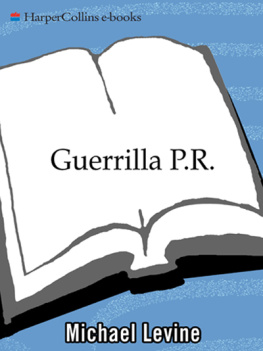
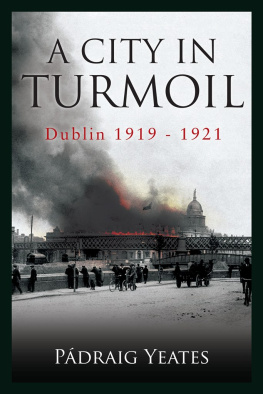
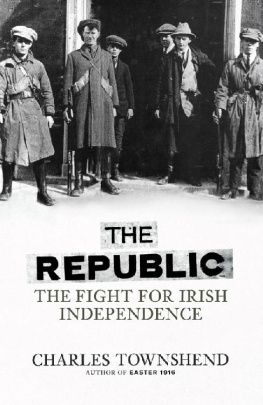
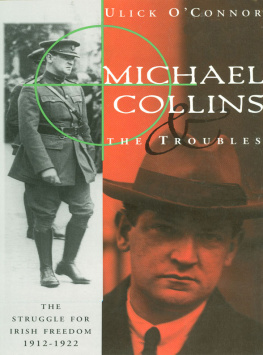

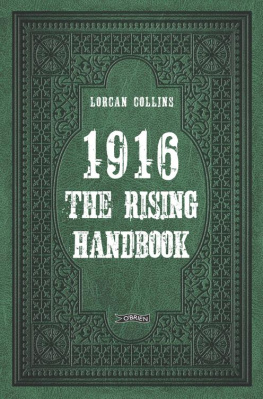
![Lorcan Collins [Lorcan Collins] - 1916: The Rising Handbook](/uploads/posts/book/143326/thumbs/lorcan-collins-lorcan-collins-1916-the-rising.jpg)
